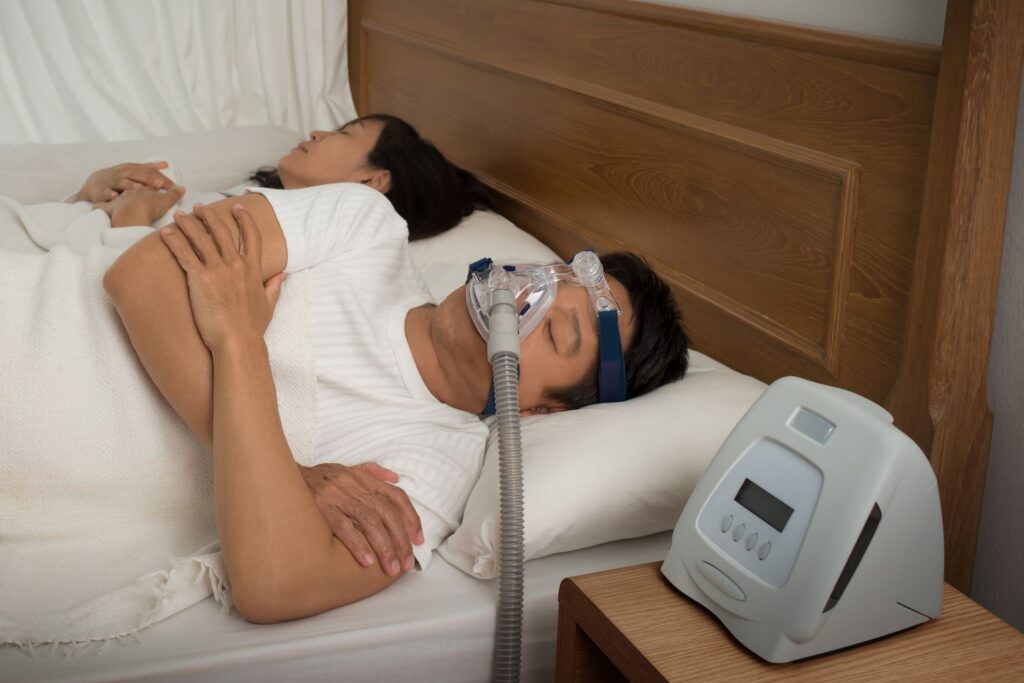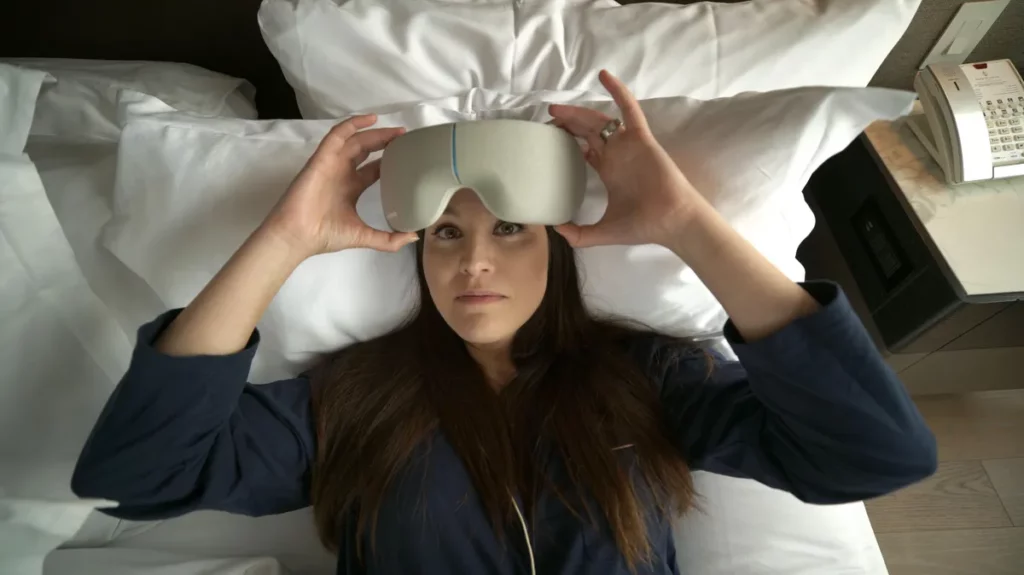Most people spend about one-third of their lives sleeping, making it an essential aspect of overall health and well-being. However, for some individuals, quality sleep can be elusive. Sleep disorders can disrupt sleep patterns and lead to a variety of health issues. If you suspect that you have a sleep disorder, a sleep study may be necessary to diagnose the problem and develop an effective treatment plan. However, before you book a sleep study, it’s crucial to understand the associated costs and budget accordingly.
The Importance of Sleep Studies
Sleep studies, also known as polysomnograms, are diagnostic tests performed by sleep medicine specialists. These studies monitor various physiological activities during sleep, such as brain waves, eye movements, and muscle activity. By capturing this data, sleep studies can help identify the presence and severity of sleep disorders, such as sleep apnea, insomnia, and narcolepsy. With accurate diagnosis, appropriate treatment options can be recommended, leading to improved sleep quality and overall health.
When it comes to understanding sleep study costs, it’s crucial to consider the various components that contribute to the overall expense. From the initial setup to the final analysis, each stage plays a significant role in determining the total cost of a sleep study.
The Role of Sleep in Overall Health
Sleep plays a vital role in our overall health and well-being. It allows the body to rest and rejuvenate, promoting physical and mental health. Insufficient or poor-quality sleep can increase the risk of chronic conditions, including heart disease, obesity, diabetes, and depression. By addressing underlying sleep disorders through sleep studies, individuals can take proactive steps towards improving their overall health.

Why Might You Need a Sleep Study?
There are several signs and symptoms that may indicate the need for a sleep study. These include excessive daytime sleepiness, loud snoring, morning headaches, difficulty falling or staying asleep, and frequent awakenings during the night. If you experience any of these symptoms, it’s essential to consult with a healthcare professional who may recommend a sleep study to determine the cause of your sleep disturbances.
One fascinating aspect of sleep studies is the technology used to monitor sleep patterns. Sleep medicine specialists utilize advanced equipment that captures an array of data, providing valuable insights into an individual’s sleep architecture. This data includes not only brain waves, eye movements, and muscle activity but also heart rate, oxygen levels, and even the position of the body during sleep. By analyzing this comprehensive data, sleep medicine specialists can gain a deeper understanding of an individual’s sleep patterns and identify any abnormalities or disruptions.
Furthermore, sleep studies offer a unique opportunity to study the relationship between sleep and other aspects of health. For example, researchers have found correlations between sleep disorders and conditions such as high blood pressure, stroke, and even certain types of cancer. By conducting sleep studies, scientists can uncover valuable information about the intricate connections between sleep and overall health, paving the way for new treatment approaches and preventive strategies.
Breaking Down Sleep Study Costs
The Components of a Sleep Study
A comprehensive sleep study typically consists of an overnight stay at a sleep center or the use of a home sleep testing device. During the study, various sensors are placed on the body to monitor different physiological parameters for a specified period. These sensors record data related to brain activity, heart rate, breathing patterns, eye movements, and muscle activity. The intricate process of data collection is essential for capturing a comprehensive picture of an individual’s sleep patterns and identifying any potential issues that may be affecting their quality of sleep.
Moreover, the role of the sleep medicine specialist in analyzing the data cannot be understated. Their expertise in interpreting the results is crucial for making an accurate diagnosis and recommending appropriate treatment options tailored to the patient’s specific needs. This personalized approach ensures that individuals receive the necessary care to address their sleep-related concerns effectively.
Typical Costs Associated with Sleep Studies
The costs associated with sleep studies can vary depending on multiple factors, including the location, facility type, and insurance coverage. On average, the cost of an in-lab sleep study can range from $1,000 to $3,000, while home sleep testing is typically less expensive, costing between $250 and $500. These costs cover the diagnostic procedure, interpretation of the results by a sleep specialist, and any necessary follow-up consultations. Understanding the breakdown of these costs can help individuals make informed decisions about their healthcare and prioritize their sleep health.
Factors Influencing the Cost of Sleep Studies
Several factors can influence the cost of sleep studies, and it’s essential to be aware of them before planning your budget.
When considering the cost of a sleep study, it’s important to take into account the duration of the study. Some sleep studies may require an overnight stay at a sleep center, while others can be done at home. The length of the study and whether it requires specialized monitoring equipment can impact the overall cost. Find more about monitoring on https://www.evalcommunity.com/career-center/what-is-monitoring/
Location and Facility Type
The location and type of facility where the sleep study is conducted can significantly impact the cost. Sleep centers and clinics in larger cities or urban areas generally tend to be more expensive than those in rural areas. Additionally, the level of expertise and reputation of the facility can also affect the overall cost of the sleep study.
Furthermore, the amenities and services provided by the facility can contribute to the cost. Some facilities offer private rooms, meal services, or additional comfort measures that can increase the overall price of the sleep study.
Insurance Coverage and Out-of-Pocket Expenses
Insurance coverage plays a crucial role in determining sleep study costs. It’s essential to understand the terms of your insurance policy and what it covers regarding sleep studies. Some insurance plans may cover the full cost of the study, while others may require a co-pay or deductible. It’s advisable to contact your insurance provider to clarify the specifics of your coverage to avoid any unexpected expenses.
Moreover, certain insurance providers may have preferred facilities or networks where the cost of the sleep study is lower. It’s beneficial to inquire about these options to potentially reduce your out-of-pocket expenses while still receiving high-quality care.
Ways to Manage Sleep Study Expenses
Managing sleep study expenses can be challenging, but there are several strategies that can help alleviate the financial burden. In addition to the tips mentioned above, here are a few more ways to manage sleep study expenses:
Apply for Research Studies
Many universities and research institutions conduct sleep studies as part of their ongoing research. By participating in these studies, you may be able to receive a sleep study at little to no cost. Not only will you be contributing to scientific knowledge, but you’ll also have the opportunity to receive expert care and monitoring during your study.
Consider Telemedicine Options
In recent years, telemedicine has become increasingly popular for various medical services, including sleep studies. Telemedicine allows you to have a sleep study done from the comfort of your own home, eliminating the need for expensive overnight stays at a sleep center. While not all sleep disorders can be diagnosed through telemedicine, it can be a cost-effective option for certain conditions.
When choosing a telemedicine provider, make sure to research their credentials and ensure that they are accredited and experienced in conducting sleep studies remotely. Additionally, check with your insurance provider to see if they cover telemedicine services and what the reimbursement process entails.
Explore Clinical Trials
Clinical trials are another avenue to consider when looking for ways to manage sleep study expenses. Pharmaceutical companies and research organizations often conduct trials to test new medications or treatments for sleep disorders. By participating in a clinical trial, you may have access to cutting-edge treatments and therapies at no cost. However, it’s important to carefully evaluate the risks and benefits of participating in a trial and consult with your healthcare provider before making a decision.
Remember, managing sleep study expenses requires careful planning and research. By exploring different options and taking advantage of available resources, you can find ways to make sleep studies more affordable and accessible. Don’t hesitate to reach out to sleep centers, insurance providers, and other organizations for assistance and guidance in navigating the financial aspect of sleep studies.

Frequently Asked Questions About Sleep Study Costs
Are Sleep Studies Worth the Cost?
Sleep studies can provide valuable information for diagnosing sleep disorders and developing appropriate treatment plans. By identifying and addressing underlying sleep issues, individuals can experience significant improvements in their overall health and quality of life. While sleep studies may incur costs, the long-term benefits they offer often outweigh the associated expenses.
It’s important to recognize that investing in a sleep study is not just about the financial aspect but also about investing in your health and well-being. The information gathered from a sleep study can lead to a better understanding of your sleep patterns, potentially uncovering issues that could be impacting your daily life without you even realizing it. This knowledge can empower you to take proactive steps towards improving your sleep quality and overall health. To learn more about life click here.
Can You Negotiate Sleep Study Costs?
In some cases, it may be possible to negotiate sleep study costs, especially if you are a self-pay patient. Contact the sleep center directly to discuss your situation and inquire about any available discounts or flexible payment options. Keep in mind that not all facilities may be willing to negotiate, but it never hurts to ask.
When considering the costs associated with a sleep study, it’s essential to remember that the value of the information obtained far exceeds the monetary investment. The data collected during a sleep study can provide insights into potential sleep disorders, breathing issues, and other conditions that may be affecting your overall health. This detailed analysis can guide healthcare providers in developing personalized treatment plans to address your specific needs and improve your quality of life.
By understanding the importance of sleep studies, breaking down the associated costs, considering the factors that influence these costs, and exploring strategies to manage expenses, you can make informed decisions and effectively budget for your sleep study. Prioritizing your sleep health is an investment in your overall well-being, and proper diagnosis and treatment can lead to a better night’s sleep and improved quality of life.
Find more about home sleep test kit on: Using a Home Sleep Test Kit in Australia How It Works
